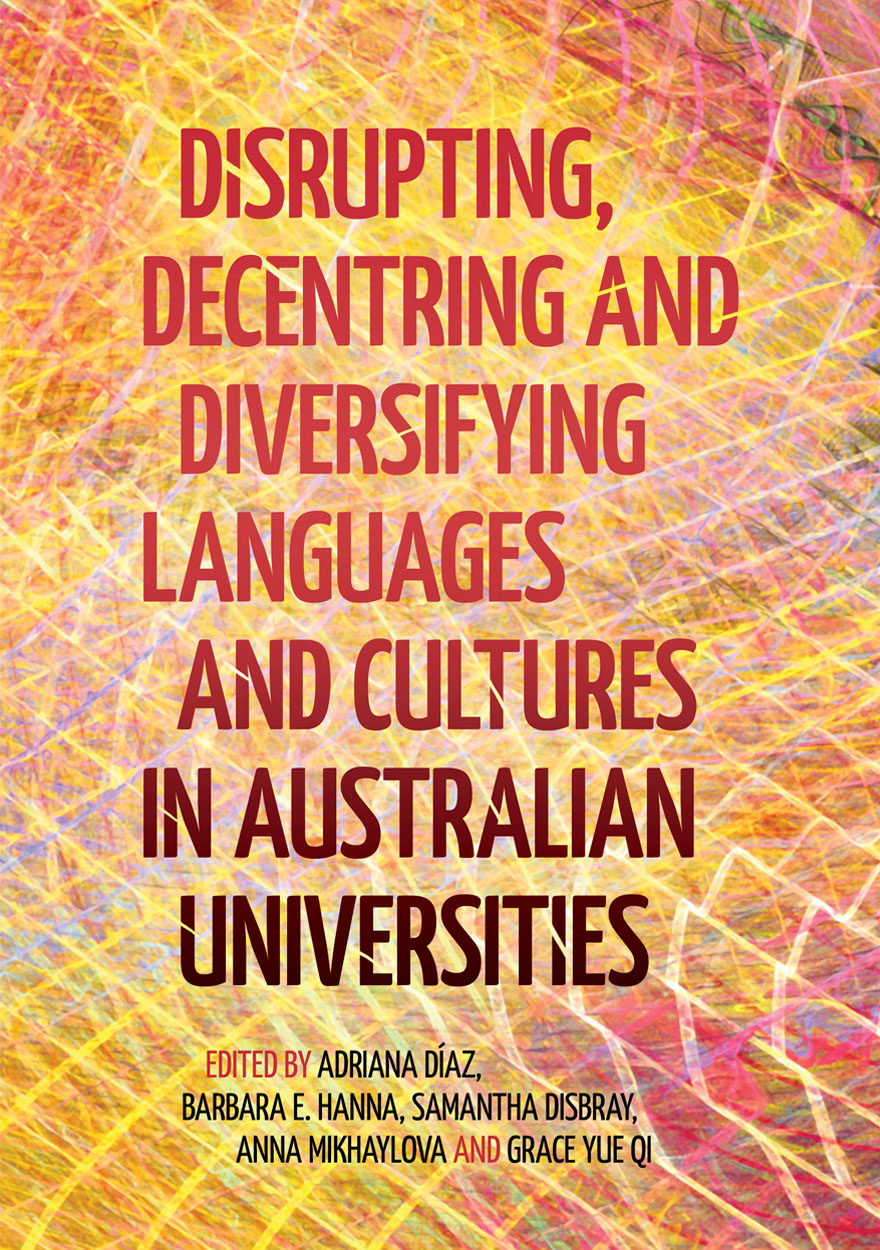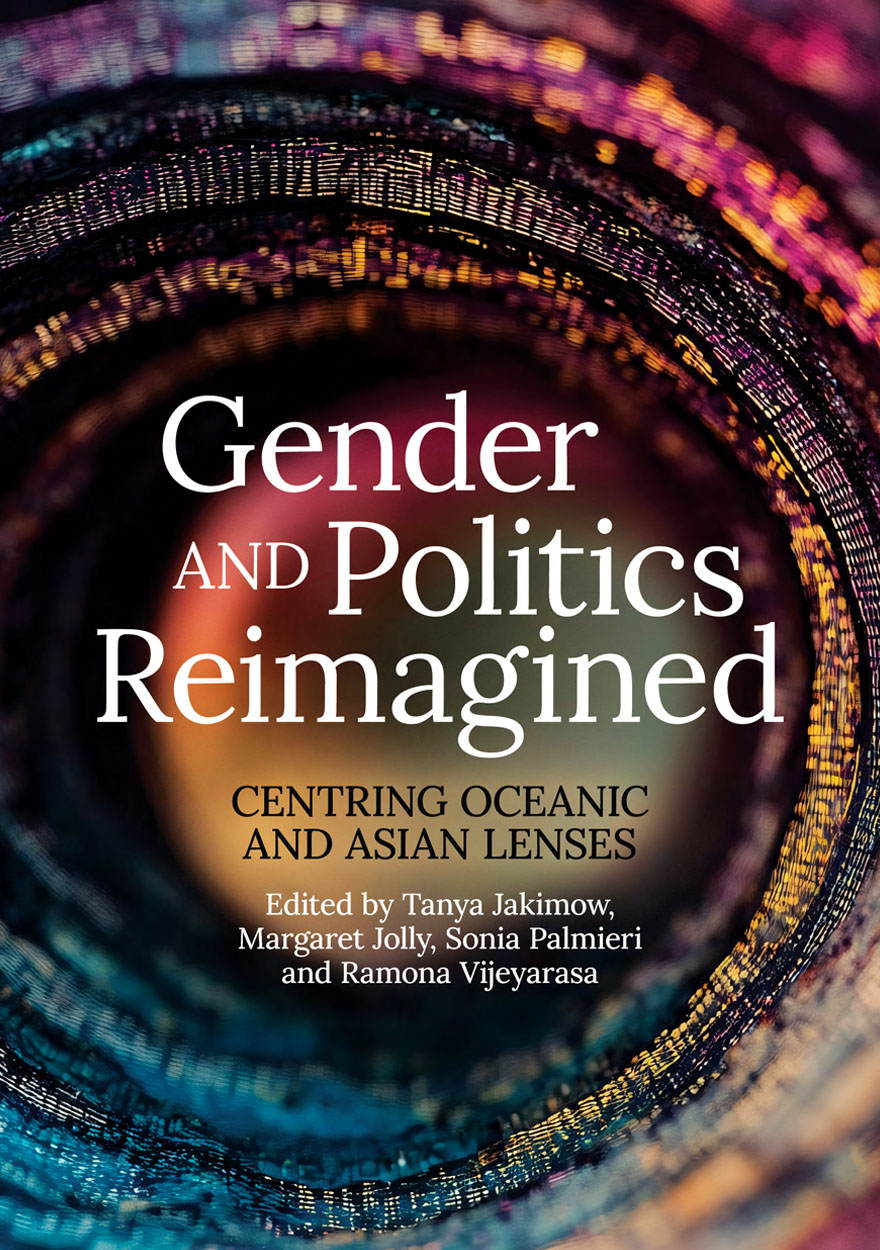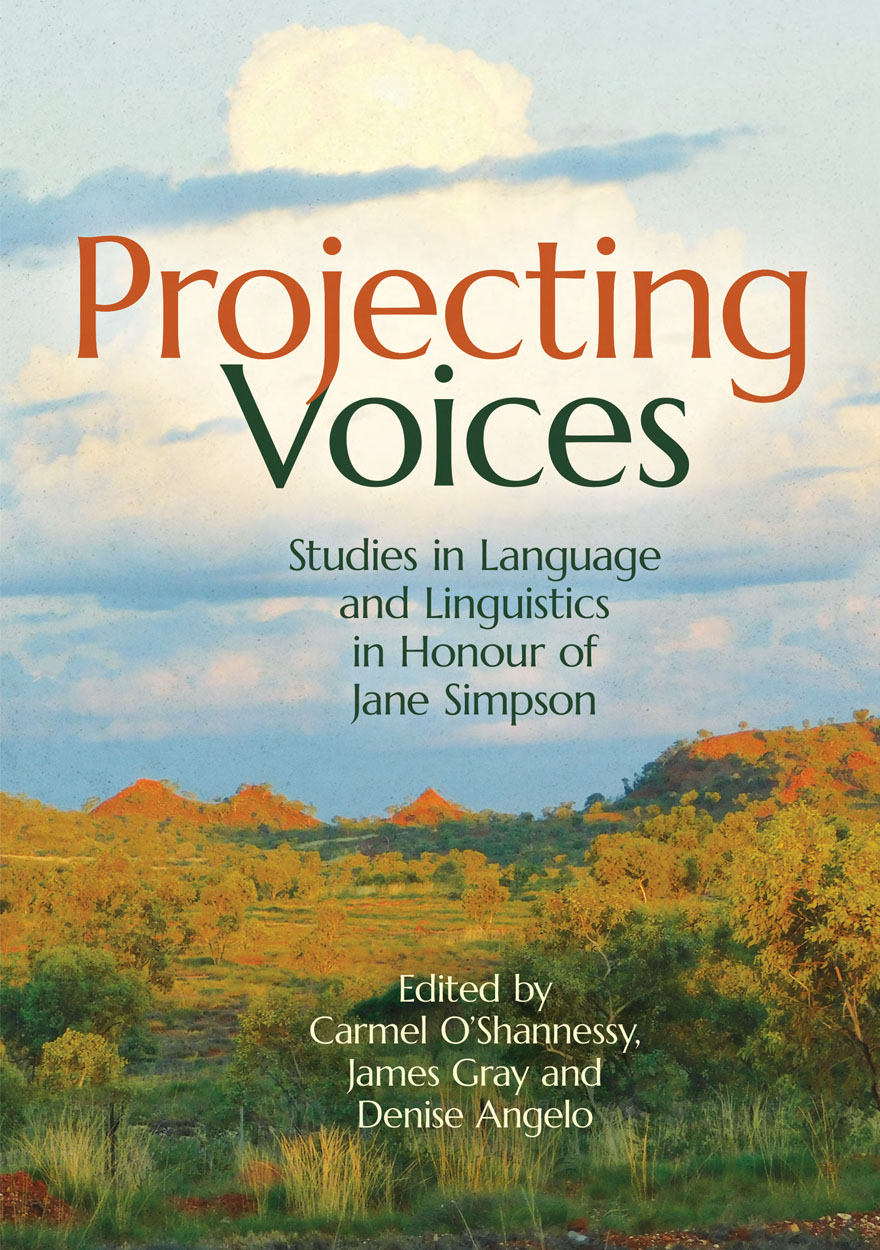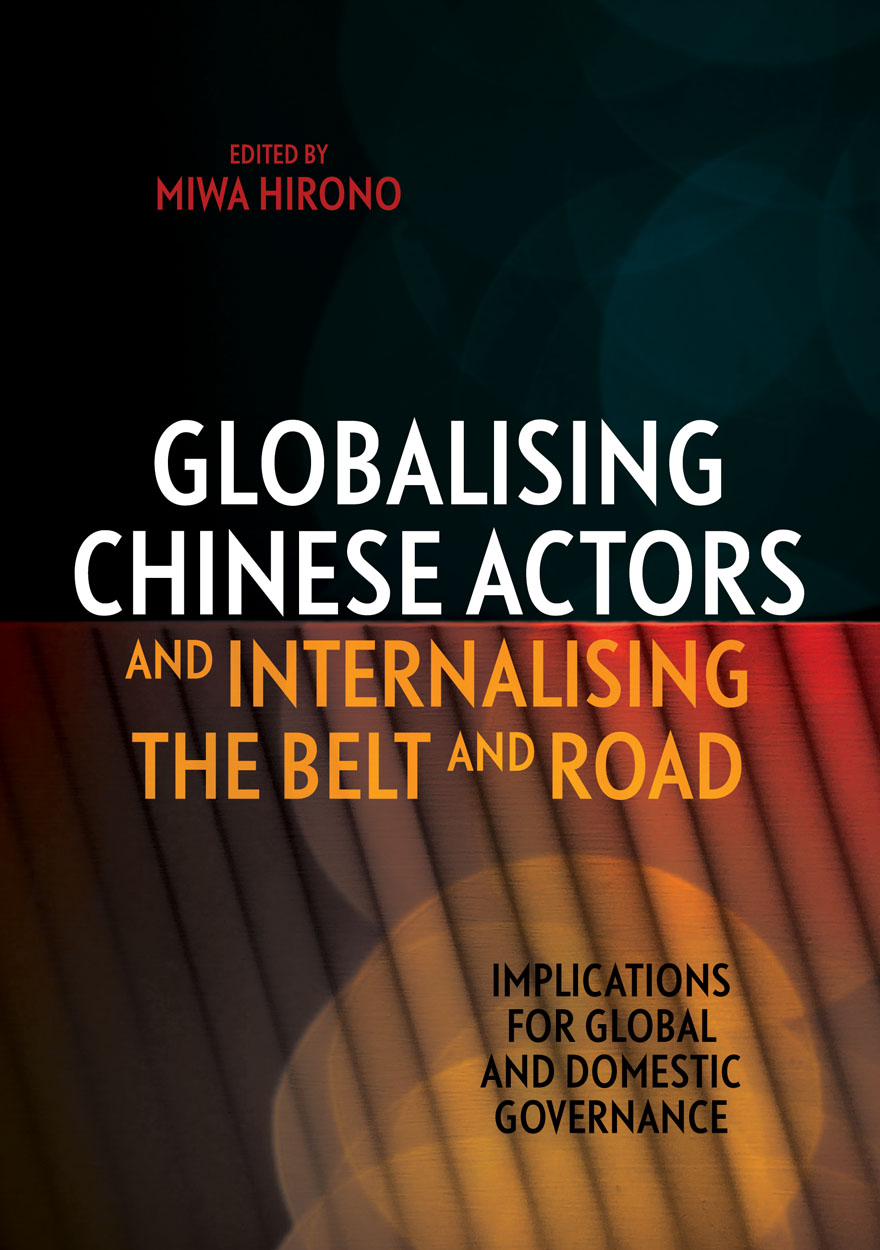Search titles
Displaying results 1 to 10 of 1138.

Disrupting, Decentring and Diversifying Languages and Cultures in Australian Universities »
Publication date: 2025
How can languages and cultures in Australian higher education be disrupted, decentred and diversified? Contributors to this volume advance theoretical, critical (self-)reflections and position papers, pedagogical explorations of classroom practice as well as data-driven empirical investigations to challenge, resist and stretch how languages and cultures are both taught and imagined in research.
From metaphorical conceptualisations of knowledge production, discussions of virtual reality, and innovation and creativity viewed through the lens of Indigenous epistemologies, to language learning curricula designed to challenge heteronormativity and cisgenderism, and a reconceptualisation of the role of language educators as designers, each chapter emphasises the vital role of innovation as the driving force of positive disruption.
What emerges here is the resilience and adaptability demanded of languages and cultures researchers and educators as they navigate an ever-shifting educational landscape. Taken as a whole, this volume serves as a testament to these scholars’ collective capacity to adapt, evolve, embrace and actively drive change, fostering a more diverse, equitable and inclusive future for their field.
Coming soon
Notify me
Gender and Politics Reimagined »
Centring Oceanic and Asian Lenses
Publication date: 2025
This timely collection reflects a coming together of academics, gender and development practitioners and activists to reflect on the gendering of politics. By centring Asia and Oceania and traversing numerous disciplines, the volume disrupts the illusion of certainty and clarity as to what is known about gender and politics. Individual chapters present specific research projects, while providing epistemological, theoretical and methodological reflections on how knowledge is produced and by whom, challenging the existing canon. The contributions collectively demonstrate the possibilities for theorising from Asia and Oceania to address the lack of diversity in political representation and leadership on a global scale, in which gender, race, class, caste, (dis)ability and sexual identity are powerfully interconnected.
Arising out of the Gender and Cultural Diversity in Politics: Australia, Asia and the Pacific workshop held at The Australian National University in 2022, this collection underscores the importance of fostering scholarship and mentorship in the academy. The diversity of authorship encompasses differences in ethnicity, nationality, sexuality and career stage, with an emphasis on the inclusion of authors from various Oceanic and Asian countries. The volume promotes academic practice as integral to social change, and social action as a form of knowledge production. As such, Gender and Politics Reimagined is sure to be a cornerstone in future scholarly and activist discussions.
Coming soon
Notify me
Projecting Voices »
Studies in Language and Linguistics in Honour of Jane Simpson
Publication date: 2025
This volume provides cutting-edge research on a wide range of questions in linguistics research, mostly centred on Australian Indigenous languages. Written by world-leading experts, the chapters take a fresh look at current questions in each topic, inspired by the work of Australian linguist Jane Simpson.
The chapters have implications for linguistic theory in the areas of historical linguistics, morphosyntax, semantics, the lexicon, language acquisition and issues in languages in education, and renewal of endangered languages.
This volume is essential reading for students and experienced researchers alike, with interests in theoretical and applied linguistics, especially in topics and issues related to Australian Indigenous languages.
Coming soon
Notify me
The Wild Australia Show »
The Story of an Aboriginal Performance Troupe and its Afterlives
Authored by: Paul Memmott, Maria Nugent, Michael Aird, Lindy Allen, Chantal Knowles, Jonathan Richards
Publication date: July 2025
The Wild Australia Show was a troupe of 27 Aboriginal performers recruited from northern Queensland in the 1890s for a world tour that would culminate at the World’s Columbian Exposition in Chicago in 1893. Those grand plans were ultimately dashed, and the troupe only performed in Brisbane, Sydney and Melbourne before disbanding. This book tells the story of the Wild Australia Show from its inception to its afterlives. It traces how the performers were recruited, the places they came from, the repertoire they created, rehearsed and performed, their experiences on tour and the politics of their representation in word and image. Drawing on an extensive archive of newspaper reports, government records, and court proceedings, richly complemented by photographs and other visual images, the authors seek to reconstruct the Wild Australia Show story from the perspectives of the performers themselves. The book contributes to a growing literature on the history of Aboriginal performers and performances under colonial conditions, and the ways in which public performance could be a means for cultural survival and resurgence.
Format: Hardback

Aboriginal History Journal: Volume 48 »
Edited by: Crystal McKinnon, Ben Silverstein
Publication date: 2025
In this volume, Christopher Morton carefully traces the provenance of a Wiradjuri or Gamilaroi marara (tree carving) currently resting at the Pitt Rivers Museum in Oxford, considering its unfinished journey and the way it has been framed and recontextualised, as well as the ways it may experience a future return to good relation with and in Country. Julia Mortensen draws on oral histories of life and mobility in and around the Yumba – a ‘fringe camp’ at Cunnamulla – to narrate generations of autonomy from formal state control, reconsidering the Yumba as a centre of Aboriginal action and community strength: the centre, not the fringe. And on the 35th anniversary of the publication of Henrietta Fourmile’s landmark article ‘Who Owns the Past?’, Kirsten Thorpe returns to this work, centring the archival sovereignty that Fourmile sought and towards which First Nations archivists work today. This sovereignty is reflected in the following conversation between Gundungurra woman Kazan Brown and non-Indigenous historians Emily O’Gorman and Grace Karskens, transcribed by Natalie Osborne, which represents Gundungurra Country as storied, enduring and under threat.
The volume includes two memorial sections, remembering Frances Peters-Little and Lyndall Ryan and reflecting on their vital contributions to this journal and to the wider field of Aboriginal history. Alongside several book reviews, we present a review forum responding to Shannyn Palmer’s Prime Ministers’ Literary Award-winning Unmaking Angas Downs: Myth and History on a Central Australian Pastoral Station.
Coming soon
Notify me
Deeper, Strategic Collaboration in the Securities Sector »
India and Australia
Authored by: Sonia Khosa
Publication date: 2025
Winner of ANU Press ECR Prize in Legal Scholarship
In an era of globalised finance and increasing cross-border activity, regulatory cooperation has become essential for market integrity and development. This book examines the potential for strategic collaboration between India and Australia in the securities sector—two nations with distinct but complementary economic and legal frameworks. Through a comparative analysis of the Securities and Exchange Board of India (SEBI) and the Australian Securities and Investments Commission (ASIC), it evaluates alignment with International Organization of Securities Commissions (IOSCO) principles, focusing on supervisory powers, enforcement mechanisms and compliance effectiveness. The analysis identifies shared regulatory goals and governance principles, highlighting opportunities for bilateral cooperation.
Offering a roadmap for capital market integration and regulatory innovation, the book makes a timely contribution to international financial scholarship. It delivers practical insights for policymakers, legal scholars and regulators interested in forging resilient cross-border partnerships—both within the Indo-Pacific and beyond.
Coming soon
Notify me
Globalising Chinese Actors and Internalising the Belt and Road »
Implications for Global and Domestic Governance
Edited by: Miwa Hirono
Publication date: June 2025
The literature on the Belt and Road Initiative (BRI) points out either its negative or positive impacts on global and domestic governance. However, such a dichotomy is too simplistic, not least because it tells us little about the complexity of change in the nature of the BRI as it is implemented. This book argues that the BRI manifests an intricate dynamic comprising two contradictory tendencies: Xi Jinping’s top-down and centralised approach to policymaking, with its focus on producing robust Chinese actors who can succeed in a competitive global economy; and a fragmented and decentralised reality made up of an expanding range of actors engaged in realising myriad BRI projects on the ground. The co-existence of these two contradictory tendencies implies that the BRI has a multidimensional impact on global and domestic governance in general, and on the role of Japan in countries where BRI projects take place. Japan matters because of its ‘in-between’ position between non-Western donors and the Development Assistance Committee of the Organisation for Economic Co-operation and Development, a position that offers a unique dimension to a frequently dichotomous discussion of the BRI. Globally, China’s promotion of the BRI has strengthened an aspect of global governance, the ‘open economy’, while at the same time fostering the Chinese nuance of a ‘planned economy’. Domestically, a Chinese-style approach to state management and investment without political conditions may set back democratisation efforts in emerging countries, but the BRI has also given rise to a renewed sense of democracy in those countries. These multidimensional impacts enable China and Japan to find an on-the-ground complementarity in their approaches to development aid in relation to future cooperation.

Ink and Land »
Documenting Factionalism around a Prospective Mine in Papua New Guinea
Authored by: Willem Church
Publication date: 2025
Ink and Land is an ethnographic account of political and legal struggles over landownership in Papua New Guinea, in which competing factions seek recognition as customary landowners of Wafi-Golpu, a major prospective copper-gold mine. Drawing on extensive archival research, oral histories, court documents and fifteen months of fieldwork, the book examines how different groups attempt to harness resource extraction for their benefit and how, in doing so, they reshape their social worlds through the medium of affidavits, court declarations and incorporation certificates. To analyse this process, the book advances the concept of antagonistic documentality—a form of conflict in which parties engage in conflicting world-building projects through and about documents and, in doing so, create an order of paper that outlasts the disputes themselves. Through this detailed case study, Ink and Land reveals how legal and bureaucratic battles over resource extraction in Papua New Guinea formalise factionalism, consolidate elite control over new sources of wealth, and redefine the nature of groups and landownership. By focusing on conflict over documents as a process of social transformation, the book offers fresh insights into the politics of land, law and resource extraction in the contemporary Pacific.
Coming soon
Notify me
Rethinking Histories of Indonesia »
Experiencing, Resisting and Renegotiating Coloniality
Edited by: Sadiah Boonstra, Bronwyn Anne Beech Jones, Katharine McGregor, Ken M.P. Setiawan, Abdul Wahid
Publication date: 2025
Rethinking Histories of Indonesia: Experiencing, Resisting and Renegotiating Coloniality provides a critical evaluation of histories of Indonesia from the formal period of colonisation to the present day. The volume approaches Indonesian history through the lens of coloniality, or the structures of power and control that underpin colonisation and which persist into the present. Bringing together seventeen authors from across the world, the volume offers alternative conceptualisation of Indonesian history and lays bare the enduring legacies of and processes that reproduce coloniality.
“This is a significant and exciting volume in terms of its scale, the range of disciplines, approaches and topics included and, ultimately, for its contribution to the field of Indonesian history and historiography, and Indonesian studies and decolonial studies more broadly … The contributors to this book do [a great service to] students of Indonesian history, its cultures, society and politics, offering new sources, voices, approaches and perspectives. Overall, they provide a fresh and vital critique of not only Indonesia’s colonial history but its continuing lived influences on present day Indonesia and beyond.”
—Jemma Purdey, Australia-Indonesia Centre, Monash University
Coming soon
Notify me
Military History Supremo »
Essays in Honour of David Horner AM FASSA
Edited by: Joan Beaumont, Garth Pratten
Publication date: June 2025
Professor Emeritus David Horner AM FASSA is one of Australia’s greatest military historians and its fifth official historian of war and military operations. Few who undertake research in the field can do so without consulting his prodigious, authoritative and definitive publications. Serving for 25 years in the Australian Army before joining The Australian National University, Horner is the epitome of the soldier–scholar and has played a key role in establishing military history as an academic discipline in Australia.
This volume honours Horner’s long career of service to history and the nation. Authors pay tribute to Horner’s legacy by engaging with his scholarship, applying his conclusions to new case studies and contexts, reflecting and expanding on the subjects he addressed and the methodologies he employed, and pushing the boundaries of the discipline he was instrumental in founding. The breadth of Horner’s research is demonstrated by the subjects and themes they address, including strategic planning and policy, command, multinational operations, intelligence and defence policy. Military History Supremo both underscores Horner’s contribution to Australia’s military and intelligence history and highlights the vibrancy and relevance of the field today.



